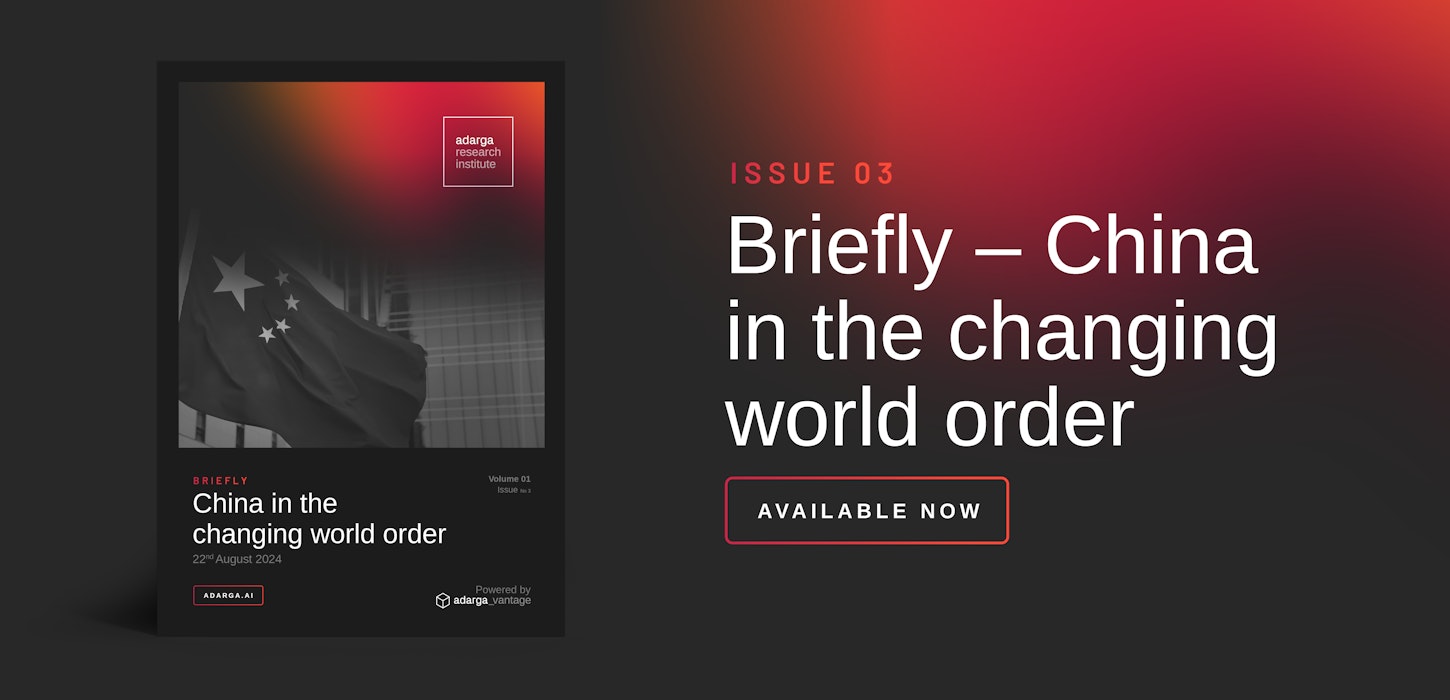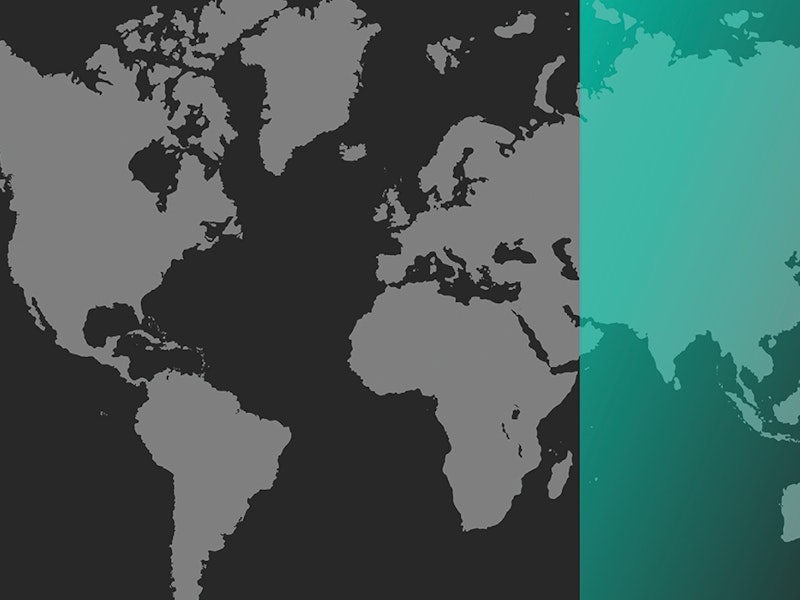
Adarga Briefly Issue 03: China in the changing world order
Adarga has released its third issue of Briefly - China in the changing world order, a series of reports going behind the headlines to deliver the ‘so what’ of China’s political, military, and economic activity around the world.
The third issue of Briefly examines
➡ Deepening defence cooperation between Vietnam and China
➡ China-Fiji relations following the PM's first visit to China since his election in 2022
➡ China's response to EU tariffs on EVs
To read the third issue, click here
To get issues delivered directly to your inbox click here
About Adarga Briefly
In each issue Adarga's geopolitical experts select recent China-related events – both those that have made the headlines of major media outlets and others that have received little attention – and, supported by Adarga’s Vantage information intelligence software, deliver insight into the wider consequences.
“The actions of China’s state, armed forces, and industry have far-reaching ramifications,” explains Sam Olsen, Adarga's Vice President of Geopolitics, “It is not enough to stay on top of the news alone, decision makers in industry, the military, and government departments need to understand the ‘so what’ of events if they are to maintain a competitive advantage.”
Adarga’s Vantage software has been developed to increase the quality, speed, and breadth of intelligence outputs through the application of cutting-edge AI tools.
“Using Vantage enables us to deliver unique insight and foresight that's derived from a huge volume and range of global information,” Olsen notes, “Vantage lifts the time-consuming research burden off the analyst, freeing them up to concentrate on delivering critical analysis that has been enriched by the tools in the software.”
Vantage is underpinned by Adarga’s state-of-the-art AI platform, and provides analysts, planners, and commanders with a vital ability to rapidly extract, contextualise, interrogate, and connect information drawn from millions of internal and external sources in over 75 languages - in a single, secure environment.
“The ability to automatically translate documents from such a wide range of languages greatly broadens the ‘reach’ and granularity of our research,” Olsen says, “It enables our analysts to access local news and other sources that it would be extremely challenging, time-consuming, and costly to do so with traditional research methods. These sources often provide critical information and context that can be a differentiator in the quality of analysis.”









